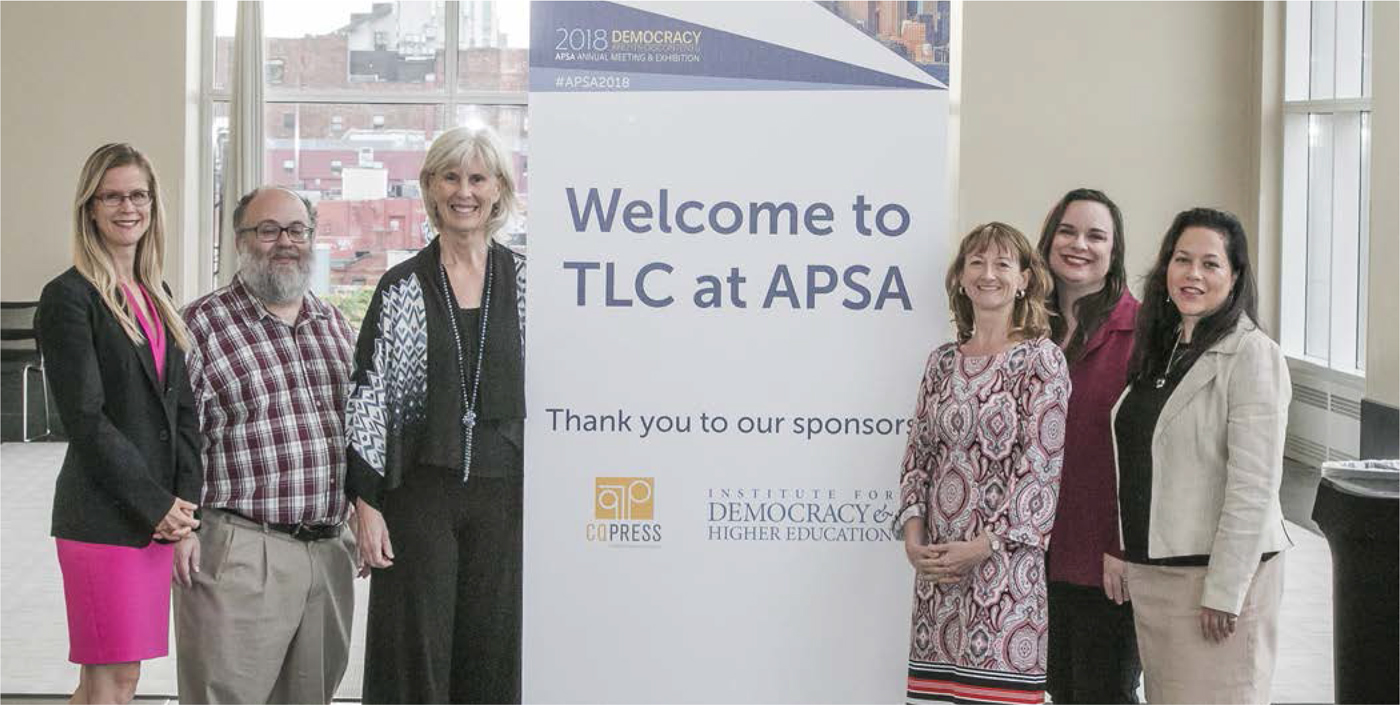On Saturday, September 1 at the APSA annual meeting, the first “TLC at APSA” was launched with the inaugural theme, “Political Science Education in Contentious Times.” This day-long conference seeks to maintain the progress and momentum on quality pedagogy and the scholarship of teaching and learning (SoTL) in the discipline which has been sparked by APSA’s annual Teaching and Learning Conference and the now APSA-sponsored Journal of Political Science Education (accessible online free to all members). Attracting over 200 participants, the event included a breakfast and introductory keynote speech by Dr. Nancy Thomas, Director of the Tufts University Jonathan M. Tisch College of Civic Life’s Institute for Democracy and Higher Education, several interactive workshops and teaching cafés, a networking lunch that was sponsored by CQ Press/Sage, three separate track-based paper panels, and a closing reception. Dr. Thomas’ talk explored how college campuses can best foster climates of civility. Workshops offered by political scientists from a wide range of institutions ignited deep discussions regarding the conference theme, provided tools for teaching large lecture classes and increasingly diverse student bodies, and explored simulations and games about political institutions and policymaking. The networking lunch encouraged open discussion of teaching challenges and the exchange of ideas for success. Shorter teaching cafés gave participants the opportunity to try new teaching technologies such as 3D viewers to help students experience life in refugee camps, learn how to work with librarians to increase student information literacy, use games to teach ethics in decision making, and create impactful teaching assistant training programs.

Figure 1 Above, from left to right: Renée Van Vechten, program cochair, Victor Asal, program committee member and leader of the “Simulations and Games” track, Nancy Thomas, program commitee member and keynote speaker, Tressa Tabares, program committee member leader of the “Technology and Innovative Pedagogy in the Classroom” track, Elizabeth Bennion, program committee member and leader of the “Civic Engagement Education” track and Alison Rios Millett McCartney, program cochair stand in front of TLC at APSA before the inaugural breakfast.
Following the usual TLC model of workshopping papers organized around core themes, three tracks gave political scientists from across the world an opportunity to take a “deep dive” into one of three areas. Presenters shared research papers and attendees collaborated in follow-up discussion during two afternoon sessions: Civic Engagement, led by Elizabeth Bennion; Simulations and Games, led by Victor Asal; and Innovative Pedagogy and Online Education, led by Tressa Tabares. Track summaries will be covered in more detail in the next edition of PS.
Preliminary feedback suggests that the integration of TLC into the annual conference attracted political science educators who had never before attended an APSA teaching and learning event, many of whom are burdened by the financial cost and time for travel of attending more than one conference per year. Others were encouraged by APSA’s decision to highlight the exchange of research and ideas about best teaching practices in the discipline, and voiced their hopes to continue the TLC at APSA and also to revive an annual TLC. Survey data collected during the conference will be evaluated to improve events and planning around teaching and learning initiatives.
TLC at APSA was cosponsored by the APSA Committee on the Status of Community Colleges in the Profession, the Political Science Education section, CQ Press, and the Institute for Democracy and Higher Education. Further information on the conference will be published in the January 2019 issue of PS.





